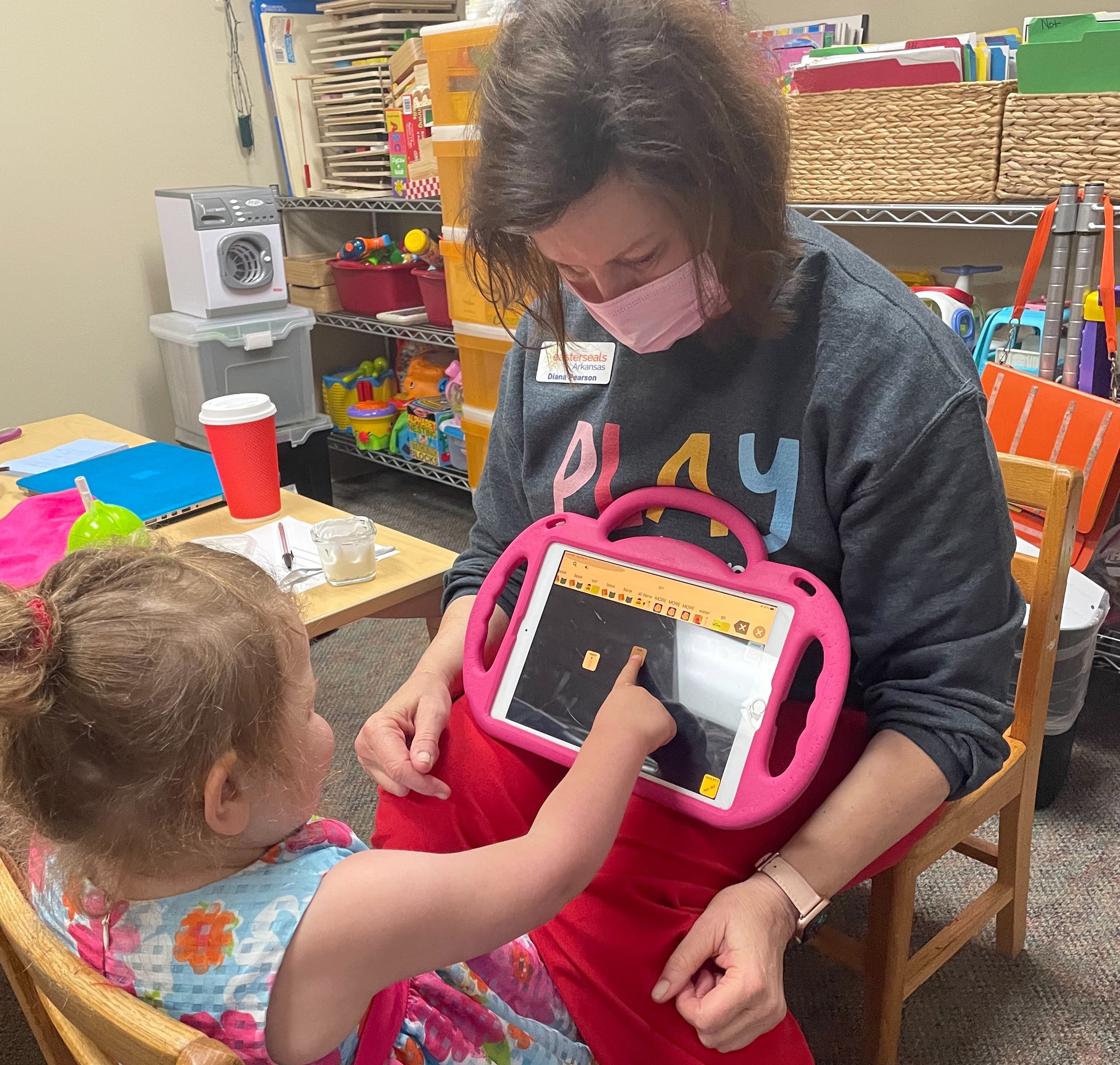

In May, we celebrate Better Hearing and Speech Month. Each week we will bring you some pertinent and useful speech and hearing-related information from our team of fabulous speech therapists.
This week, we focus on Augmentative and Alternative Communication (AAC).
You may have seen someone write in a notebook to answer a question. Maybe you have seen people using gestures to communicate. You may have seen someone point to pictures or push buttons on a computer that speaks for them. These are all forms of augmentative and alternative communication, or AAC.
AAC includes all of the ways we share our ideas and feelings without talking. We all use forms of AAC every day. You use AAC when you use facial expressions or gestures instead of talking. You use AAC when you write a note and pass it to a friend or coworker. We may not realize how often we communicate without talking.
People with severe speech or language problems may need AAC to help them communicate. Some may use it all of the time. Others may say some words but use AAC for longer sentences or with people they don’t know well. AAC can help in school, at work, and when talking with friends and family.
Here are important things you should know about AAC:
- AAC supports speech development.
- AAC builds language skills.
- There are no cognitive prerequisites to AAC use.
- AAC can reduce the severity and frequency of challenging behaviors.
- It’s never too late for someone to develop better communication skills with
- AAC.
At Easterseals Arkansas, our therapists are equipped with the knowledge and technology to help your child thrive and communicate independently with the help of AAC.
AAC may help some individuals with autism communicate more effectively.
Here are some things to know about autism:
- Autism affects an estimated 1 in 54 children annually according to 2020 data released by the U.S. Centers for Disease Prevention and Control. Boys are four times more likely as girls to be diagnosed with autism.
- Generally autism is seen as a different way of thinking.
- Researchers know relatively little about autism that is considered the fastest growing developmental disability. They do know that autistic brains are larger and that they “prune” or shed excess neurons more slowly than neurotypical brains.
- Scientists have identified that autism affects linkages between the parts of the brain that govern emotions, sensory input and executive functioning. Additional research has shown that autistic individuals are less able to pick up on some of the socially rich features of an environment. Experts simply don’t know why.
- Multiple studies have proven that there is no link between vaccines and autism.
Easterseals Arkansas hires quality therapists and educators who are eager to help your child – whether they have been diagnosed with autism or not – reach their full potential with AAC.
